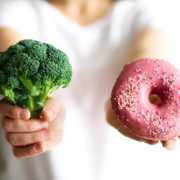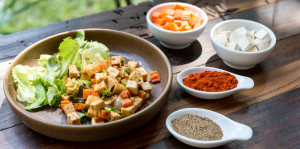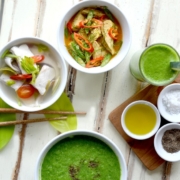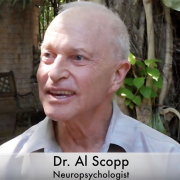 https://samahitaretreat.com/wp-content/uploads/2024/01/Untitled-design-7.png
1200
1800
Kirsten Mia
http://samahitaretreat.com/wp-content/uploads/2024/01/samahita-logo-v2.svg
Kirsten Mia2024-01-10 09:35:492024-01-10 09:35:49Rise of the junk food generation
https://samahitaretreat.com/wp-content/uploads/2024/01/Untitled-design-7.png
1200
1800
Kirsten Mia
http://samahitaretreat.com/wp-content/uploads/2024/01/samahita-logo-v2.svg
Kirsten Mia2024-01-10 09:35:492024-01-10 09:35:49Rise of the junk food generationVegan, Vegetarian or Meat Eater?
Vegan, Vegetarian or Meat Eater?
by Alexandra Steyn
Nowadays it is increasingly common to hear about people being vegan or vegetarian. What is the fuss about? It can be a way of life, especially in the yogic tradition, but its popularity is increasing, especially in Europe and the USA. Is it a passing trend or does it really have an impact on your health?
Recent studies (1) show that more people nowadays prefer to cut meat and animal products from their diet. For some, the intake of meat and animal products is linked to weight and health problems such as diabetes, heart disease, digestive problems and other lifestyle diseases (2). Yet equally some vegan and vegetarian diets are notoriously unhealthy and can lead to similar poor health outcomes, especially for vegans where more processed foods are used and not enough fat is consumed. One must be very careful about just cutting certain key foods from one’s eating regimen. More important is to look at how processed the food is and reduce as much as possible.
Classes of vegans and vegetarians:
If this is something that is of interest to you, but you aren’t exactly sure what being vegan or vegetarian means, let’s look at a few variations:
-
Vegan: Vegans do not eat any animal products or by-products at all – not even
honey, gelatin or any other products associated with animals. Wool, leather and silk
do not feature in their wardrobes at all. - Lacto-Ovo vegetarians: These vegetarians do not eat meat, but dairy products and eggs.
- Lacto-vegetarians: They eat dairy products, but not eggs.
- Ovo-vegetarians: They do not eat meat or dairy products, but eggs.
- Pescatarian: Only fish, dairy and eggs are eaten.
- Pollotarian: Chicken and fish are the only animal products that are consumed.
- Flexitarian: This diet is a plant-based diet and meat intake is limited.
Would you be able to make this change? Where’s the protein?
Although many believe they cannot survive a day without meat, vegans get their vitamins, minerals and protein from several plant-based sources:
Calsium: Broccoli, Kale, tofu, Nuts and Nut milks (like soya, coconut and almond milk).
Iron: Peas, spinach, and soya products.
Vitamin B12: Nutritional yeast, breakfast cereals and from a variety of supplements you can find in the pharmacy. (But it is of course much better to be getting your nutrients directly from foods).
Protein: Quinoa is actually the only plant based complete protein containing the same nine amino acids as animal protein.
Vegans: Most green vegetables like wheatgrass, broccoli, kale seaweed, spinach, various types of beans and lentils contain protein, as does the grain brown rice. Eating broccoli and brown rice together actually contains all 9 amino acids to make it a complete protein.
Vegetarians: Dairy and eggs contain more than enough protein to sustain a healthy body and mind.
How can meat and dairy products be harmful for some people’s health?
Meat and dairy in supermarkets are mostly produced from large farms and processed in factories. Animals are fed GMO foods, pumped with hormones to make them grow faster and this causes our meat to be filled with chemicals, hormones and bacteria that our bodies aren’t supposed to receive. In addition, most people also eat too much of these products. As we may have been taught to include animal protein on our plates every meal, it makes it hard for a lot of people to wrap their heads around having a meal without any animal protein.
If you want to make a change then what’s a good approach?
- Start slowly, don’t make any drastic changes – Perhaps start by eliminating one food at a time. – Red meat, then pork, chicken, fish etc.
- If eating meat then choose grass-fed animals only and wild caught fish.
- Read, listen and talk to others about their experiences.
- Make sure that you eat enough of all the food groups to ensure that you get all the necessary vitamins and minerals, especially good fats, so you avoid processed foods.
- Listen to your body, be patient.
Interesting facts:
1. There are about 1.4 Billion vegetarians of necessity and another 75 million by choice. (3)
2. Plant based food takes less than a day to digest, where meat products can take up to 48-72 Hours to move through the bowel. (5)
3. Some claim that the A-positive blood groups should not eat any meat at all. (4) A vegetarian diet is therefore easy to work. This is a fallacy however based on poorly reported data. Blood type has been shown to correlate with disease states and some have drawn this to include diet choice as causes.
4. Experts believe that Approximately 65 percent of the human population has a reduced ability to digest lactose after infancy. Lactose intolerance in adulthood is most prevalent in people of East Asian descent, affecting more than 90 percent of adults in some of these communities. (6)
References:
- – https://foodrevolution.org/blog/vegan-statistics-global/
- – https://www.vivahealth.org.uk/why-meat-and-dairy-harm
- – https://en.wikipedia.org/wiki/Vegetarianism_by_country
- – http://veg.ca/2005/11/11/the-blood-type-diet/
- – https://www.healthline.com/health/how-long-does-it-take-to-digest-food
- – https://ghr.nlm.nih.gov/condition/lactose-intolerance
More from the Samahita Blog







